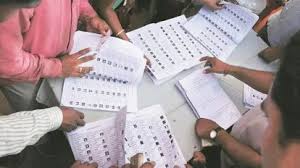Starting with Bihar, fresh electoral rolls: Proof of birth date for those not in 2003 list

The Election Commission of India (ECI) has announced a fresh revision of electoral rolls, starting with Bihar. This time, a key change has been introduced: voters whose names are not in the 2003 electoral list must provide proof of birth date to register or verify their eligibility.
This initiative aims to improve the accuracy and reliability of voter databases. The ECI plans to implement similar drives in other states after the Bihar rollout.
Why Bihar?
The ECI chose Bihar because of recurring issues with outdated and inaccurate voter data. The state has faced challenges like voter duplication, impersonation, and incorrect entries. Starting here allows the ECI to test the new method in a high-priority region.
Bihar’s Chief Electoral Officer is leading the process. District officials and booth-level officers (BLOs) have begun training to carry out door-to-door verification.
What’s New in the Process?
The major change is the mandatory requirement for birth date proof—but only for people not listed in the 2003 electoral rolls.
Here’s how it works:
- Voters listed in 2003 do not need to provide birth certificates or date-of-birth documents.
- Voters not listed in 2003 must show valid proof. Acceptable documents include birth certificates, school leaving certificates, and other government-issued IDs.
- Aadhaar cards may not always work, especially if the date of birth is missing or mismatched.
Ensuring Voter Authenticity
The ECI considers the 2003 list reliable and relatively clean. That list acts as a base for distinguishing long-standing voters from new or duplicate entries.
An ECI official explained:
“We want every legitimate voter to be included, but we also must remove errors. Confirming the date of birth helps us do both.”
This step helps eliminate ghost entries and fraudulent registrations.
Challenges for the Public
Some groups may find it difficult to produce official documents. People in rural and tribal regions often lack birth certificates, especially older adults born before the 1990s.
Rights organizations worry that the requirement may disqualify genuine voters. They urge the ECI to accept local-level verification, such as certificates from panchayats or affidavits signed in front of local officials.
Digital Support, With Limits
The ECI is exploring digital tools like Aadhaar-based matching and AI-assisted duplication checks. However, in Bihar’s phase, the focus remains on manual verification and community validation to ensure fairness.
Citizens can also check and update their details on the NVSP portal.
Timeline for Bihar Rollout
The ECI has released a phased schedule:
- July 1–15: Awareness campaigns across districts
- July 16 – Sept 30: BLOs conduct door-to-door checks
- Oct 1–15: Citizens can file corrections or raise objections
- November: Publication of updated electoral rolls
Other states will follow based on readiness and elections.
Political Reactions
Political parties have responded cautiously. Some opposition leaders claim the rule could remove eligible voters unfairly. They argue that marginalized groups might suffer the most.
The ruling alliance welcomes the initiative. They believe a cleaner voter list will lead to better elections and reduce fraud.
What Voters Should Do Now
If you’re a Bihar resident and unsure about your 2003 voter status, take these steps:
- Visit voterportal.eci.gov.in and check your name in the 2003 list.
- Gather your birth proof documents if you’re not listed.
- Contact your local BLO or electoral officer for verification.
- Use the NVSP portal or visit the nearest electoral office for help.
Final Thoughts
The ECI’s new approach, starting with Bihar, could set the tone for nationwide voter database reforms. Requiring birth date proof may raise concerns about accessibility, but it also adds a layer of transparency.
The key will be balancing data accuracy with citizen inclusion. If implemented with flexibility and care, this initiative can strengthen trust in India’s democratic process.






